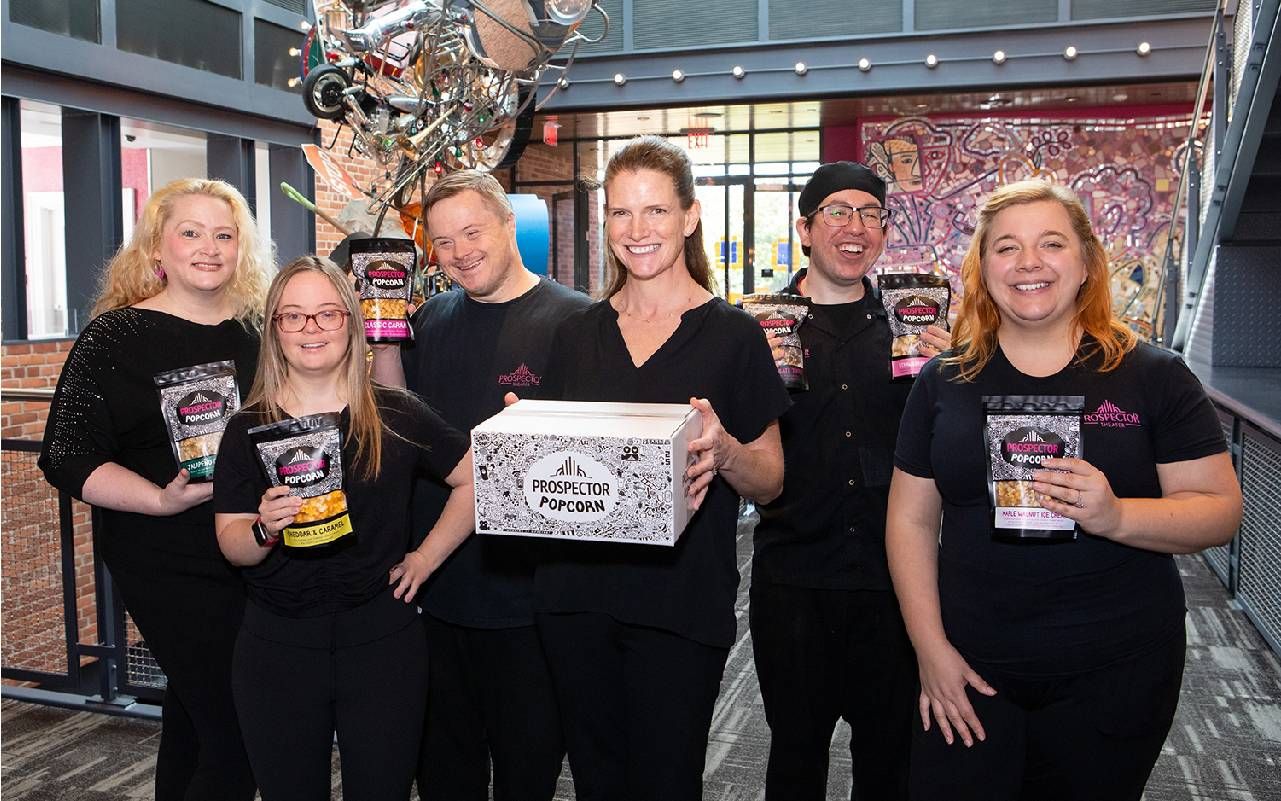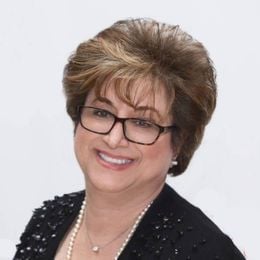How Companies Benefit from Hiring People with Disabilities
Why the business world should embrace — and employ — more workers with disabilities
Rebecca Cohen recently celebrated her 21st birthday surrounded by friends and family at a trampoline park in a Philadelphia suburb, but all was not rosy.

One topic of conversation between her mother, Lori, and other parents at the party was their concerns about the future employment of their teen and adult children with autism and other special needs.
"It is more than common for people with special needs to find short-term as opposed to long-term work, and this is an ongoing concern throughout their working lives."
Although Rebecca, who has autism, is a diligent worker with many interests and abilities, she may face a less-than-welcoming job market as she continues to navigate her employment footing.
"My concern is that even with some solid job skills, it could be difficult for Rebecca to find consistent work," says Lori. "It is more than common for people with special needs to find short-term as opposed to long-term work, and this is an ongoing concern throughout their working lives."
Lori adds that there are a variety of reasons why the employment picture can be grim for adults with disabilities, including the challenge of getting adequate transportation, especially when the hourly wages offered may be less than the cost of the rides.
It Takes Work to Get Work
She advises parents and caregivers of those with special needs to get out into the community early in their high school career, embrace volunteer opportunities and become friendly with local business owners, who may be willing to give your loved one a job.
"It is about parents making a lot of connections and networking, to help their children," she says. "Never take your eyes off the ball, when it comes to available services so you are prepared when high school is over and the bus literally stops coming."
"Meaningful employment is vital to a person's mental, social, financial and emotional health."
Rebecca and her mother are not overstating their employment concerns. According to the Bureau of Labor Statistics, nearly 80% of Americans with disabilities are unemployed — a figure that Ridgefield, Connecticut-based Prospector Popcorn, finds totally unacceptable.
The non-profit Prospector makes flavored popcorn that it sells online and at its first-run movie theater in Ridgefield. The Prospector's mission is to create inclusive job opportunities at competitive wages for people with disabilities, while also teaching audiences about the talents, skills and employability of this underrepresented workforce.
However, this is about much more than a paycheck for Prospector employees. It translates into boosted self-confidence, camaraderie among colleagues and feeling like an integral part of the community.
A Hollywood Ending in Connecticut
In fact, turning these statistics upside down, 75% of this innovative company's 125 employees self-identify as having a disability. The four-screen Prospector Theater opened in November 2014 and has been selling its gourmet popcorn at the concession stands since opening. The Prospector Popcorn online store opened in 2021.
"Prospector Popcorn wants to transform the lives of people with disabilities by giving them competitive and inclusive employment opportunities."
"Meaningful employment is vital to a person's mental, social, financial and emotional health," says Ryan Wenke, the director of theater operations at The Prospector.
The company's focus is to create jobs, highlighting the fact that many jobs go into creating each bag of popcorn, including graphic design, baking, weighing and shipping.
"Prospector Popcorn," he explains, "wants to transform the lives of people with disabilities by giving them competitive and inclusive employment opportunities."
Wenke says the company's outreach is twofold. "We're not only making a great product and a great movie experience, but we're also trying to work with employers to expand their opportunities and adopt our successful model."
"What we are doing isn't just to be nice; it is good for business," he adds. "From Fortune 500 Companies to small mom-and-pop businesses, everyone needs to understand that accessible and inclusive workplaces will bring in more customers."

Serving as a model program, The Prospector consults with business owners around the nation to highlight that "small" workplace changes to a current business can have a major impact on creating meaningful and inclusive jobs for people with disabilities.
"We want employers to understand that this is an untapped, underutilized workforce," Wenke says. "It's one of the most dedicated, talented groups of people out there."
He adds that this is about more than money and jobs: "It is about breaking stigmas and preconceived notions about those of us with disabilities."
He wants to tell employers and communities "that we are one of the most talented, reliable, hardworking workforces; we're just not getting enough opportunities."
How to Foster Long-Term Employees
Elizabeth Gallo, a mother of two, says she started working for Prospector Popcorn before the grand opening, and she still loves her job.
"I helped create the program on the production and fulfillment sides of the business," Gallo proudly explains. "We have a strong team that created an awesome product ... Some people come to the theater just to buy our popcorn, even if they are not in the mood to see a movie.
"I was given this opportunity and the space to create this program and we thrived along with the business."
Her message to concerned parents and caregivers is a positive one. "Do not lose heart. There are increasing opportunities from other businesses, and we are here to offer support to other companies that would like to do what we do here."
Gallo says she has seen progress, "but there is still so much more that we need to do," from spreading the message of who we are, what we can do, and how to create the right accommodations for the task at hand.
He Has Found the Right Fit
Joe Gillotti, 29, who has autism, has been working at Prospector since October 2014, before the grand opening of the movie theater, and says he had no idea where the job would lead. He started as an usher and says he enjoys giving introductory speeches before the movies begin.
"I was given this opportunity and the space to create this program and we thrived along with the business."
"Whenever we have an event for a big opening Marvel or Disney movie, I get into costume and create a fun atmosphere for kids and their parents," he says. He also learned embroidery and uses his skills to adorn scarves and stocking caps that are sold to moviegoers.
Gillotti tells parents of children with disabilities that their sons and daughters can find gainful, satisfying employment. "There are places out there," he says. "It's a matter of taking the time to find the right fit."
"It is also about educating people and changing the way we think about the work world," he adds. "If we do that, amazing things can happen."
Parents and Caregivers Seize the Day
To begin to address the shortage of jobs for teens and adults with disabilities, concerned parents and others have opened a couple dozen brick-and-mortar shops and other businesses around the U.S.
Many are food service businesses, such as bakeries, coffee roasting companies and doggie bakeries, including Able Coffee Company in Huntington Beach, California; Bitty & Beau's Coffee Shop in Bethlehem, Pennsylvania; Rising Tide Car Wash with three locations in South Florida; and Waggies by Maggie & Friends in Wilmington, Delaware.
A common concern of parents and educators is the lack of jobs for students who are done with secondary schooling around the age of 21 or 22. This is why parents, caregivers, therapists and special education teachers are starting these businesses.
The motivation is to create high-quality products and services that customers want to use because satisfied customers reinforce the importance of inclusivity in the workplace.
Autism Expert Is Optimistic
Temple Grandin, a Colorado State University professor who addresses autism conferences around the world, says reliable, inclusive and wage-appropriate jobs and careers are vital to bring adults with autism into the mainstream.
Grandin, a best-selling author who is autistic herself, applauds Prospector Popcorn and other businesses that focus on inclusion and says it is now up to businesses to continue the momentum.
"We want employers to understand that this is an untapped, underutilized workforce. It's one of the most dedicated, talented groups of people out there."
"The 80% unemployment rate for people with special needs is going to improve," she says. One idea is to engage people with special needs earlier — when they are teenagers or even adolescents.
"A love for animals could evolve into first volunteering and then paid work at a veterinary clinic, while an auto shop class could lead to a lifetime love for car mechanics and a job at a repair shop," Grandin says.
Grandin says the decision by some school districts to stop offering high school electives — such as auto and wood shop, home economics, theater, music, fine arts and more — is a big mistake. "How can they know if they are interested in any of this if they are not exposed to it?" she asks.
A Sense of Purpose and Value
Like other doting mothers, Lori Cohen wants her daughter to have a happy and fulfilling life, and engaging employment is an integral part of this. "I hope that Rebecca always has a purpose each morning when she wakes up," Lori says.
"I want her to feel like she always has a sense of community, because having special needs as an adult can be extremely isolating. Whatever makes her happy, will make me happy. I know that she needs a sense of purpose and value."
As she embarks on adulthood, Rebecca says she is excited by the possibilities facing her in the work world. "It's kind of fun to see what I can do," she says. "Sure, there are challenges, but anything you want to do comes with challenges. The best part of working is seeing what I am able to do."


